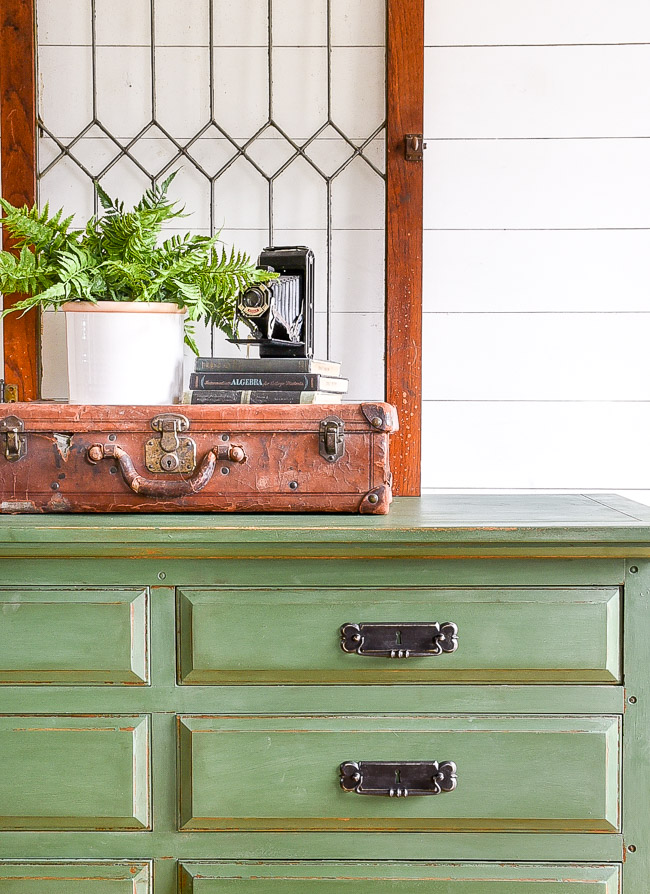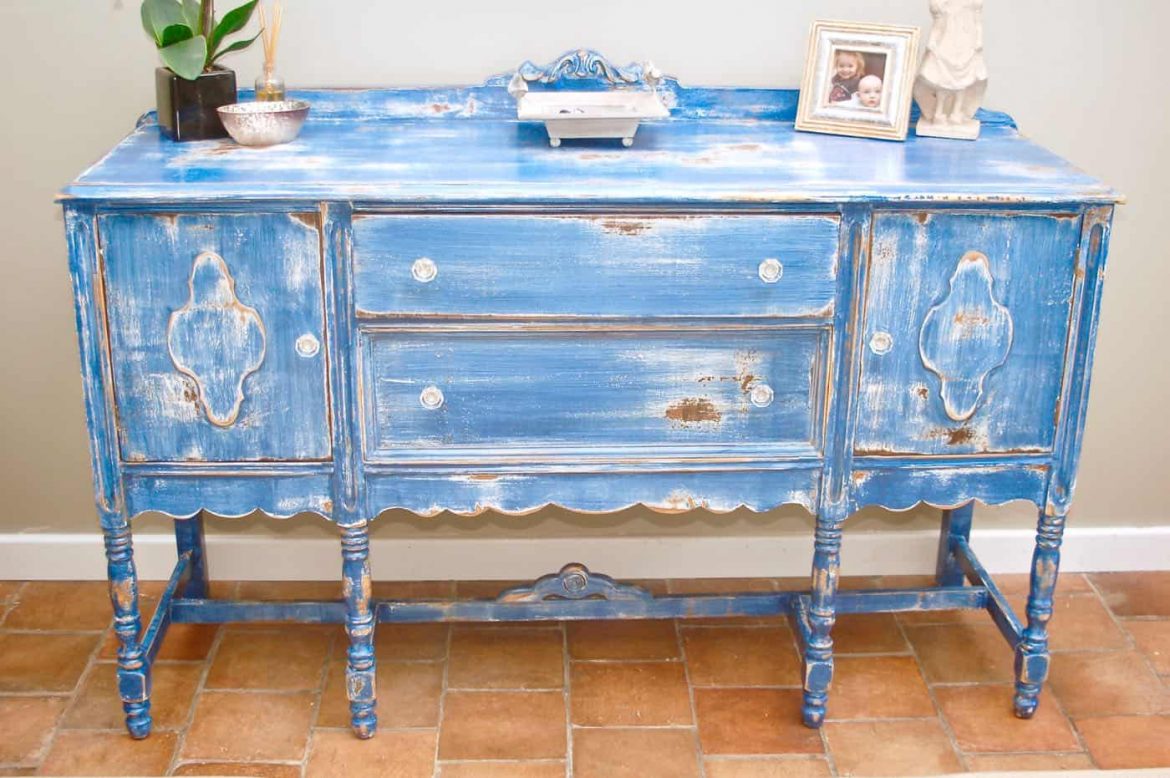If you’re aiming for a naturally rustic look in your home, milk paint is an excellent option.
What is Milk Paint?
Milk paint is an ancient paint that has been used for centuries, even found in pyramids and cave paintings. It’s made from non-toxic ingredients like milk protein, clay, and lime, making it a healthier choice for your home. Unlike many modern paints, milk paint doesn’t contain VOCs (volatile organic compounds), which can cause headaches and dizziness.
Benefits of Milk Paint
Eco-friendly and healthier: Milk paint is made from natural ingredients, so it doesn’t release harmful fumes. This makes it safer for your health and better for the environment.
Easy to use: Applying milk paint is simple. You don’t need to sand or prime the surface before painting. It sticks well to various materials like wood, metal, glass, and drywall. The paint is sold in a powdered form, which you mix with water before use. This gives it an indefinite shelf life in powder form, though once mixed, it should be used within a week.
Beautiful finish: Milk paint dries quickly, often in just 30 minutes. It provides a soft, matte finish if mixed with a binder. For a more rustic look, you can use it without a binder. The paint creates a unique, aged appearance that is hard to achieve with other paints.
D.I.Y Milk Paint
You can easily make your own milk paint at home, allowing you to customize the colour to your liking. Here’s a simple recipe:
DIY Milk Paint Recipe
Ingredients:
- 1 cup of skim milk
- 1 tablespoon of white vinegar or lemon juice
- 1-2 tablespoons of hydrated lime (available at hardware stores or online)
- Natural pigment or food colouring for colour
- A sieve or cheesecloth
Instructions:
Curdle the milk: Mix the skim milk with white vinegar or lemon juice in a bowl. Let it sit for 1-2 hours until the milk separates into curds and whey.
Separate the curds: Strain out the curds using a sieve or cheesecloth.
Make the paint base: Slowly add the hydrated lime to the curds, mixing continuously until you form a smooth paste.
Add colour: Mix in natural pigment or food colouring until you achieve your desired shade.
Apply the paint: Use the paint on wood, drywall, plaster, and other surfaces. It dries quickly, so use it soon after making it.
Storage: Store any leftover paint in the refrigerator for up to two days. Check for spoilage before using.

Unsplash
Tips:
- Wear gloves when handling hydrated lime to avoid skin irritation.
- Test the paint on a small area first to make sure you’re happy with the colour and finish.
- If the paint is too thick, add a little water to adjust the consistency (Milk paint is typically thinner than regular paint)
Milk paint offers a unique, eco-friendly, and easy-to-use alternative for home decor projects. Whether you’re looking to refresh old furniture or add a rustic touch to your walls, milk paint can help you achieve the perfect look.
ALSO SEE:
Long-life milk vs fresh milk: Which is better and what is the difference?
Feature image: Pexels
Originally published in Garden&Home Magazine

